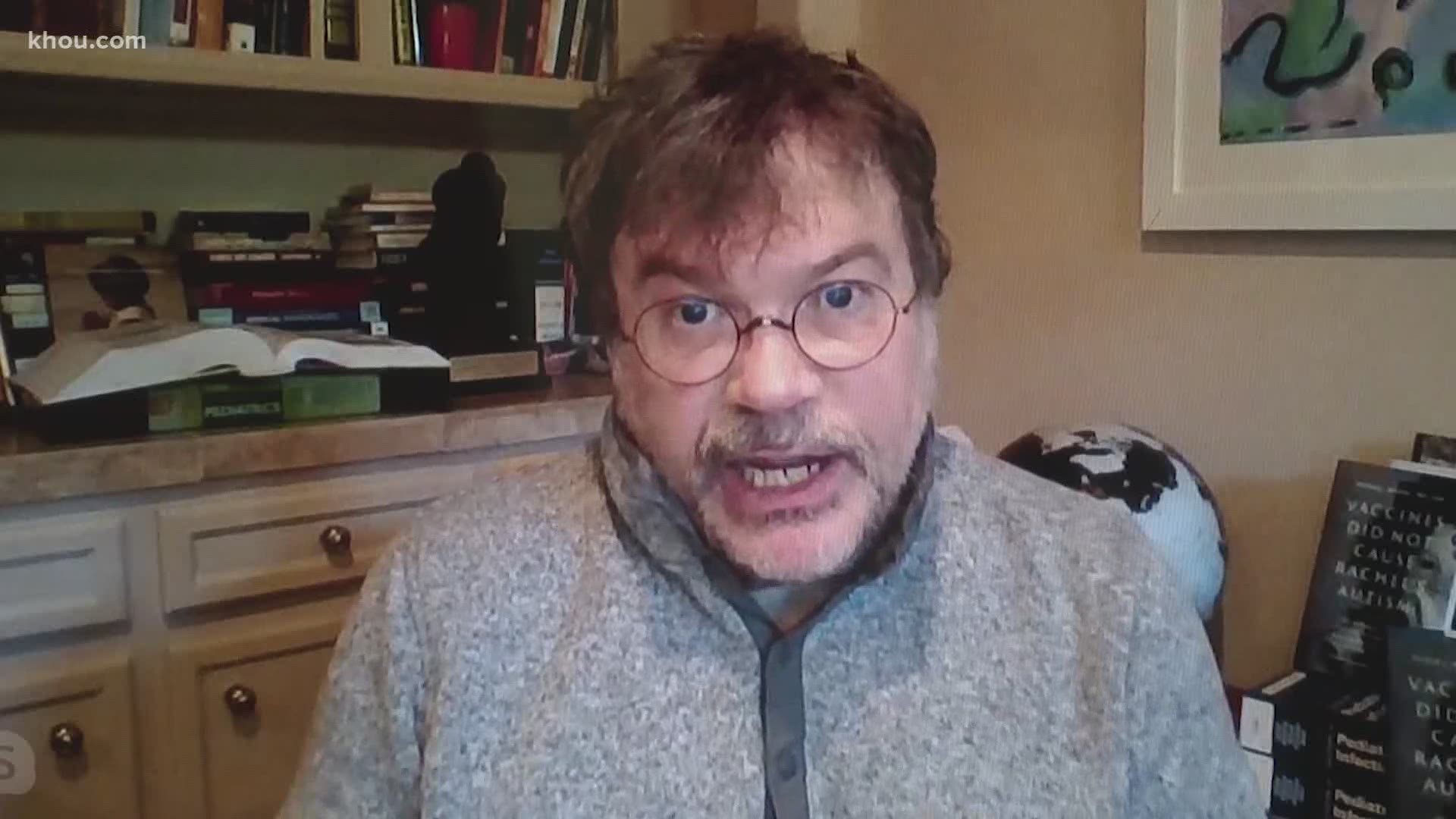HOUSTON — As Texas wraps up its first full weekend of partial reopening, Houston mayor Sylvester Turner is urging caution.
"Don't act as if this virus is gone," Turner said. "The virus hasn't left our city."
This weekend, large crowds flocked to Galveston's beaches. Folks were anxious to get out.
"I'm concerned about Houston, Harris County and the state of Texas," said infectious disease expert Dr. Peter Hotez.
Hotez said this is exactly what experts did not want to see.
"My concern is what's happening in Galveston is happening all across southeast Texas," Hotez said. "People are relaxing social distancing to a much greater extent than we thought considering the limited opening of the economy."
The models suggest social distancing should have remained in place until June in Texas. But as the state reopened this weekend, cities like Houston and Dallas continued to see cases and deaths rise.
"It's too late," Hotez said. "We're already opening up the economy. The question now is how do we fix things?"
Locally, Harris County is taking steps to protect the public through its 3-prong "Test, Trace and Treat" plan. Testing capability continues to go up, and the county will recruit 300 contact tracers.
"I'm a little concerned that the magnitude of it is not sufficient," Hotez said. "For the size of Houston, you're probably looking at a need for several thousand, not several hundred."
A spokesman for County Judge Lina Hidalgo told KHOU 11 300 tracers is a "floor not a ceiling" and the 300 augment a "robust team of epidemiologists" already working for the county.
The county will also be counting on some of the 4,000 contact tracers part of Governor Greg Abbott's plan. Whether that will be be enough is still an unknown, especially as Texans begin to head out even more. And if this weekend was any indication of what's to come, Hotez said that second COVID-19 wave could only be a matter of time.
"The risk is of course that we could see a resurgence of COVID-19 in a big way," Hotez said. "It won't happen right away but could happen alter this summer or fall."
Coronavirus symptoms
The symptoms of coronavirus can be similar to the flu or a bad cold. Symptoms include a fever, cough and shortness of breath, according to the Centers for Disease Control. Some patients also have nausea, body aches, headaches and stomach issues. Losing your sense of taste and/or smell can also be an early warning sign.
Most healthy people will have mild symptoms. A study of more than 72,000 patients by the Centers for Disease Control in China showed 80 percent of the cases there were mild.
But infections can cause pneumonia, severe acute respiratory syndrome, kidney failure and even death, according to the World Health Organization. Older people with underlying health conditions are most at risk for becoming seriously ill. However, U.S. experts are seeing a significant number of younger people being hospitalized, including some in ICU.
The CDC believes symptoms may appear anywhere from two to 14 days after being exposed.
Human coronaviruses are usually spread through...
- The air by coughing or sneezing
- Close personal contact, such as touching or shaking hands
- Touching an object or surface with the virus on it, then touching your mouth, nose or eyes before washing your hands.
Help stop the spread of coronavirus
- Stay home when you are sick.
- Eat and sleep separately from your family members
- Use different utensils and dishes
- Cover your cough or sneeze with your arm, not your hand.
- If you use a tissue, throw it in the trash.
- Follow social distancing
Lower your risk
- Wash your hands often with soap and water for at least 20 seconds. If soap and water are not available, use an alcohol-based hand sanitizer.
- Avoid touching your eyes, nose, and mouth with unwashed hands.
- Avoid close contact with people who are sick.
- Clean and disinfect frequently touched objects and surfaces.
- If you are 60 or over and have an underlying health condition such as cardiovascular disease, diabetes or respiratory illnesses like asthma or COPD, the World Health Organization advises you to try to avoid crowds or places where you might interact with people who are sick.
Get complete coverage of the coronavirus by texting 'FACTS' to 713-526-1111.

